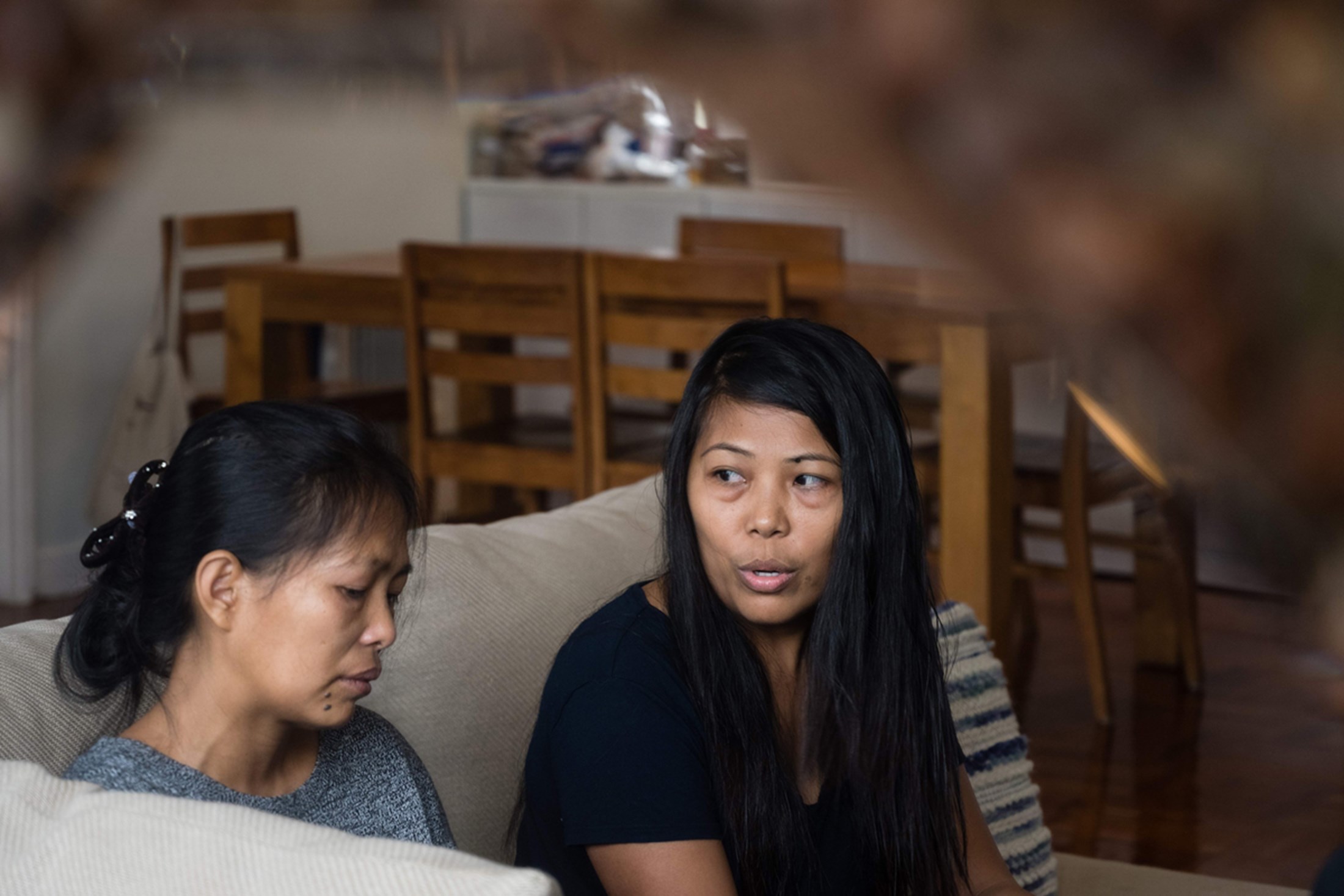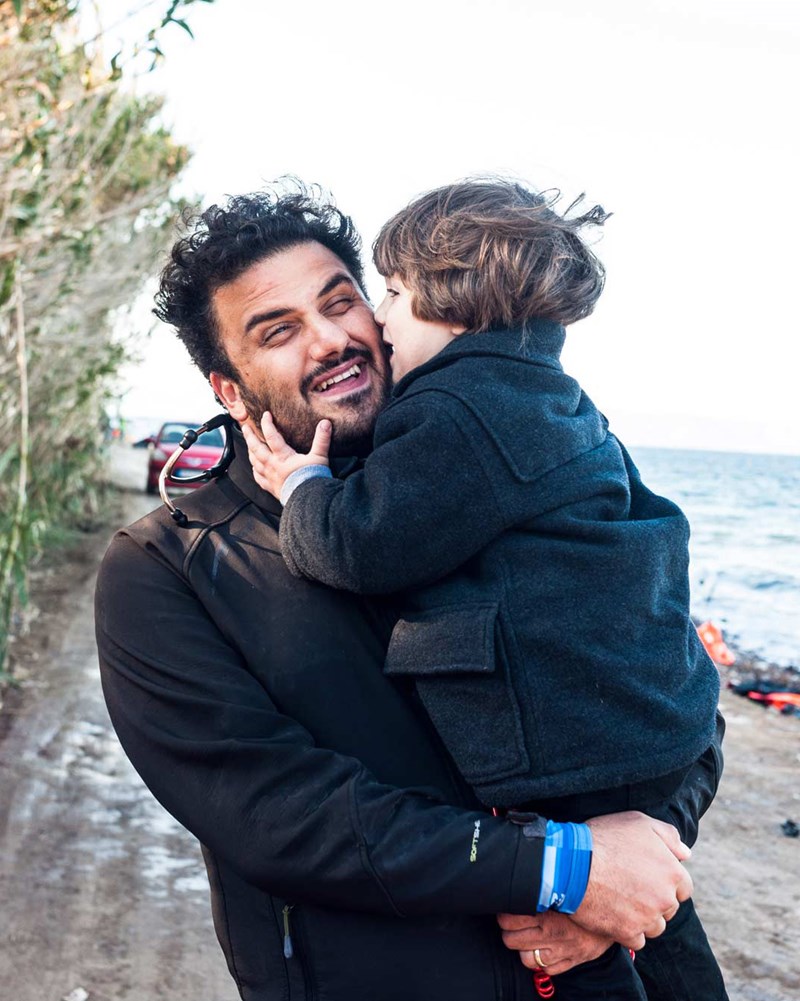The working poor
Bahrain is home to more than 450,000 migrant workers, mainly from south-east Asian countries such as India, Sri Lanka and the Philippines. Most are employed by the construction industry or as domestic workers, and are often poorly paid and vulnerable to exploitation and abuse. Few understand their rights or the Bahraini legal system, and many are afraid to speak out.
The Migrant Workers Protection Society (MWPS) was founded in 2005 to help safeguard the rights of low-income foreign workers. At its simplest, we help people when they get into trouble and have nowhere else to turn. That might mean providing food and clothing, advice on debt relief, or helping to repatriate workers who have lost their jobs.
We also advocate for workers’ rights and for changes in the law - we look for long-term solutions, rather than just putting a band-aid on issues. Our goal is to drive sustainable change.
At MWPS, the most common complaint we deal with is non-payment of wages. There are also countless cases of physical and sexual abuse, especially among domestic workers.
Sadly, we probably only see a fraction of the cases that occur since so many take place behind closed doors. Domestic workers often won’t come forward because of fear or just not knowing where to go. Much of our focus in on raising awareness that there is something you can do, and you can get help.
Another recurrent issue is employers who confiscate staff passports and identity cards. The practice is illegal but prevalent and it means that in many cases, when someone runs away from their place of employment because of mistreatment, they have no documents. This makes it hard for them to go to the police or hospital for help, because they don’t exist in the system.
Fires are another common issue, caused by crowded workers’ accommodation. It’s a result of both faulty wiring and the overloading of electrical sockets in rooms where there can be as many as 10 people living together. Lives are lost, and people are left with literally nothing. It’s tragic.
We have a dedicated committee that inspects camps to check the conditions, installing fire alarms where needed and bringing safety issues to the attention of government officials. When fires occur, we provide emergency packs containing clothes and other essentials to keep those affected going and we also distribute food packs or restaurant vouchers, so they can eat.
There is a high rate of suicide among migrant workers. They just give up, often for financial reasons: debt is a common issue. Part of our outreach work in labour camps focuses on mental health awareness. We hold talks in partnership with professionals to help workers understand and recognise symptoms of stress and depression, so they can support themselves and others.
We share information about hotline numbers for them to call if they feel symptoms of depression and, when necessary, we will refer cases to licensed practitioners. We also coordinate with doctors to deliver free general check-ups and medical consultations in the camps.

Covid-19 has presented us with a whole new set of challenges. Tens of thousands of workers have lost their jobs due to the pandemic and many that remained employed have not been receiving salaries because companies have run out of funds. We’re currently supporting 11,000 workers with ration packs, which provide food for up to a month.
Since the borders reopened we've also been working to repatriate those that are jobless and want to leave. In some cases, workers are from parts of India and Sri Lanka where commercial flights aren’t currently operating, and they can’t physically get home.
In August last year, we arranged a charter flight to repatriate 169 people to Chennai in India, to sidestep the lack of passenger flights. We've also provided funds from our budget to pay for workers’ commercial tickets and pre-flight Covid-19 tests.
MWPS is a wholly independent organisation and one of few NGOs operating in Bahrain, where the civil sector is limited to mainly government-backed or religious entities. This independence helps us foster trust among the workers we help.
The organisation was founded 15 years ago by six women – among them my aunt – who were already doing a lot of charity work with migrant workers. They came together to pool their resources and efforts and, within a year, had formally registered as an NGO.
Today, we have 60 volunteers, with a core group of about 25 who are the most active. We’re a small team with a mix of nationalities – including the United States, Britain, Sri Lanka and Pakistan – but we try to make a lot happen. Everybody brings different skills to the table and they contribute how and where they can, often around their own full-time jobs and families.
Our funding comes from a mix of individuals, private companies, corporations, and banks. We also have legal volunteers who offer us pro-bono hours or legal counsel. The monthly expenses for running MWPS are about $4,500, and 95 per cent of the money we raise goes to helping migrant workers.
"There is a high rate of suicide among migrant workers. They just give up, often for financial reasons.”

Where needed, we fundraise for individual cases too. Last year, for example, we helped a construction worker who was ill with Covid-19. While in hospital, he was diagnosed with an aggressive form of tuberculosis. Suddenly his whole world changed because he was medically unfit to work, and he needed to be repatriated to India to recover.
We raised $8,000 from Bahrain-based donors to enable him to pay his hospital bills and also take a year off work to recover, while still supporting his wife and children in India. We have thousands of stories like this, where we’ve come together to change a person’s life.
Advocacy is a key focus. We’re in regular communication with government entities to share issues and lobby for solutions. We often talk with members of the Shura Council [the upper house of Bahrain’s national assembly] and have a direct line to the Labour Authority, so we can request help for cases that get stuck in the system. We also work with local media to call attention to issues and push for change.
We'd like to see employers of migrant workers held accountable for the welfare of their employees. There are rules in place, but they are not always followed. We'd like to see more labour camp inspections, to identify who is abiding by regulations, and who needs to do more.
We are currently making recommendations to the government to better protect domestic workers, who are not fully covered by the country’s existing labour law. The proposals include setting a minimum wage, specifying the maximum number of working hours, and giving them a rest day entitlement. Many home workers are overworked and exploited.
“People living in Bahrain are becoming more aware of the hardships that blue-collar migrant workers face.”
The government of Bahrain has made a lot of progress in the 15 years since MWPS launched. For example, we used to run a shelter for female workers, which closed in 2019 due to a lack of funds. The government recognised the need for a similar facility and opened the Expat Protection Centre for victims of abuse and trafficking, which has space for 60 men and 60 women. Workers can go there if they are in trouble and receive shelter and advice.
The Bahraini government also plans to establish a system where it will be mandatory for workers to have a bank account and to receive their salaries by direct transfer. It is being rolled out slowly, but once in place, it should help tackle non-payment of wages.
Covid-19 has caused a lot of suffering but it’s also changed people’s attitudes. The compassion and empathy displayed by the public during the pandemic has been tremendous and we have seen a huge increase in donations. People living in Bahrain are more aware of the hardships blue-collar migrant workers face and are coming to us and asking how they can help.
The government is also changing too because it has learned so much dealing with issues that arose during the pandemic. I think – and I hope – these changes will continue. – PA





